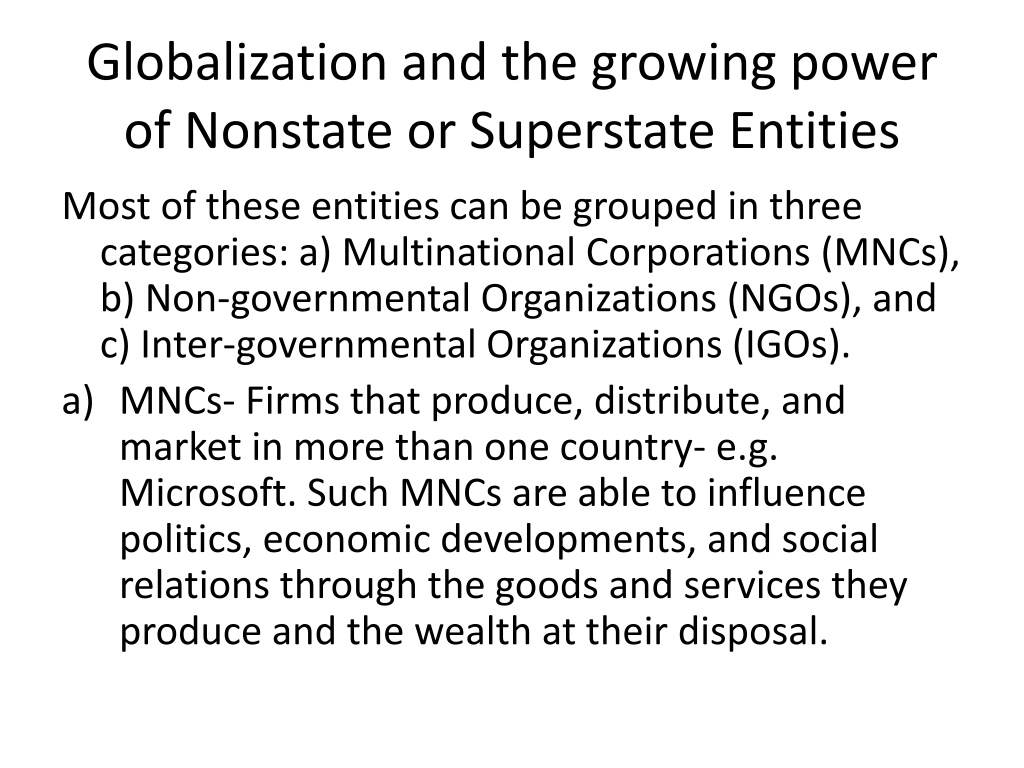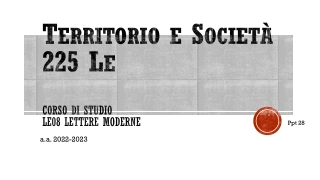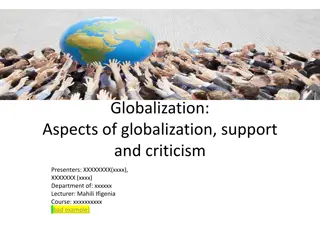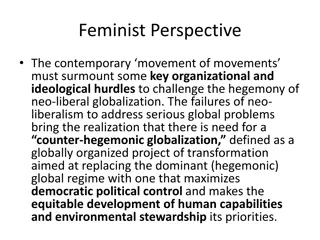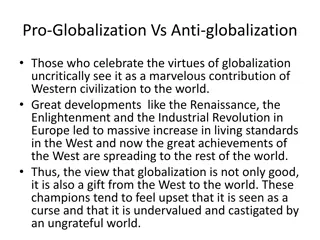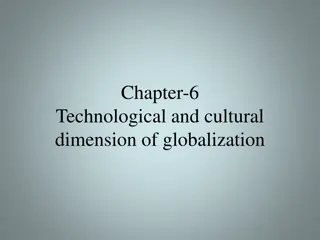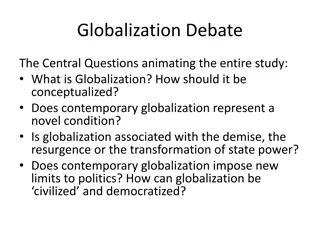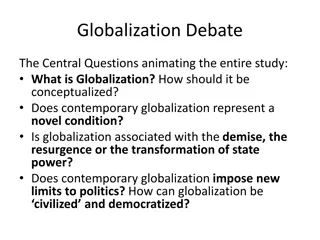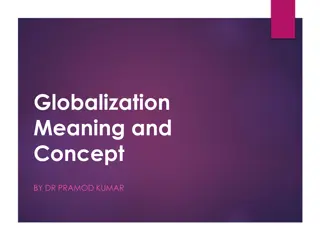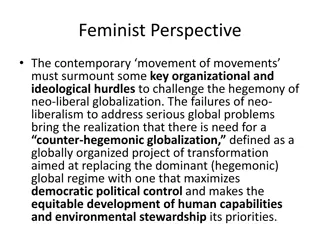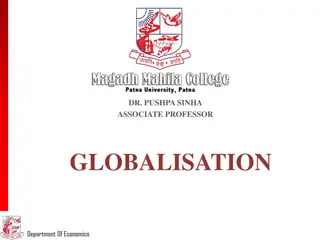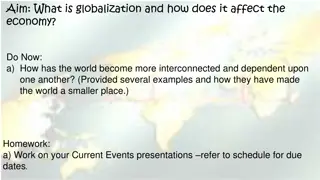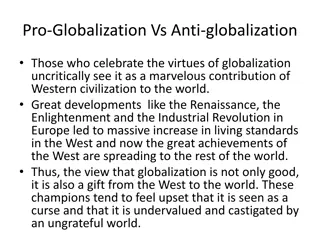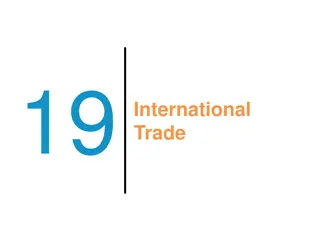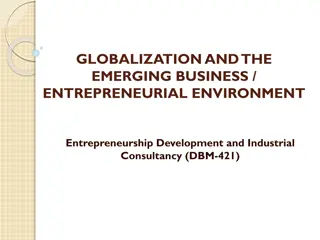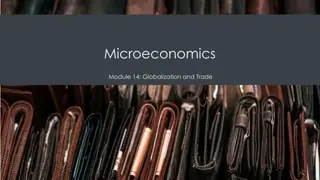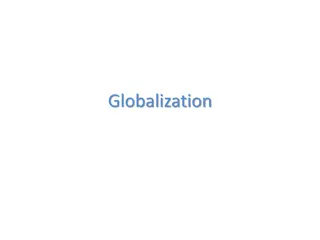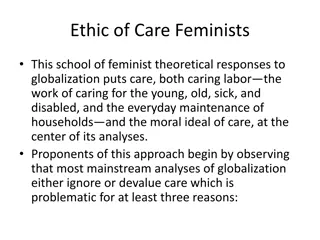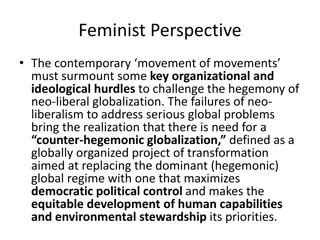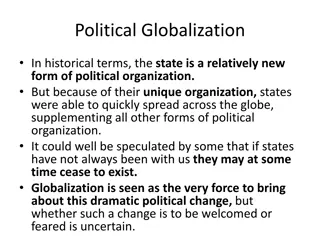Globalization and the Influence of Nonstate Entities
Globalization is shaped by the power of Multinational Corporations (MNCs), Non-governmental Organizations (NGOs), Inter-governmental Organizations (IGOs), and technological advancements. These entities wield influence on politics, economics, and social dynamics globally. The authority and legitimacy of these entities have become integral to the global system, impacting domestic and international affairs.
Uploaded on Sep 21, 2024 | 0 Views
Download Presentation

Please find below an Image/Link to download the presentation.
The content on the website is provided AS IS for your information and personal use only. It may not be sold, licensed, or shared on other websites without obtaining consent from the author. Download presentation by click this link. If you encounter any issues during the download, it is possible that the publisher has removed the file from their server.
E N D
Presentation Transcript
Globalization and the growing power of Nonstate or Superstate Entities Most of these entities can be grouped in three categories: a) Multinational Corporations (MNCs), b) Non-governmental Organizations (NGOs), and c) Inter-governmental Organizations (IGOs). a) MNCs- Firms that produce, distribute, and market in more than one country- e.g. Microsoft. Such MNCs are able to influence politics, economic developments, and social relations through the goods and services they produce and the wealth at their disposal.
Globalization and Nonstate or Superstate Entities (Contd.) b) NGOs- National and international groups , independent of any state, that pursue policy objectives and foster public participation. NGOs like Greenpeace and Amnesty International also wield influence in their ability to shape domestic and international politics by mobilizing public support across the globe. c) IGOs are groups which are created by states to serve particular policy ends- the United Nations(UN), the World Trade Organization (WTO), the European Union, the Organization of American States etc. Such organizations vary widely in their objectives, membership, and powers. But they tend to exert some form of authority over their member states.
Globalization and Technological Organizations The creation of the wheel, seafaring, and the telegraph are organizations which are largely technological in nature. Most recently, globalization has been profoundly influenced by the Internet for exchanging goods and information. But unlike MNCs, NGOs, or IGOs, the Internet has little centralization. So discussions of authority, sovereignty, and control become problematic.
Institutionalization: Authority and Legitimacy Institutionalization carries with it authority and legitimacy. Many MNCs, IGOs, and NGOs are legitimate and highly valued such that they have become a seemingly indispensable part of the global system. The Internet or other forms of technology, such as satellite television or global positioning systems (GPS) could also be put in the same category. As institutions they can call on a degree of influence and power. Such influence and power can augment and improve the workings of domestic institutions; it may also conflict with or undermine them.
